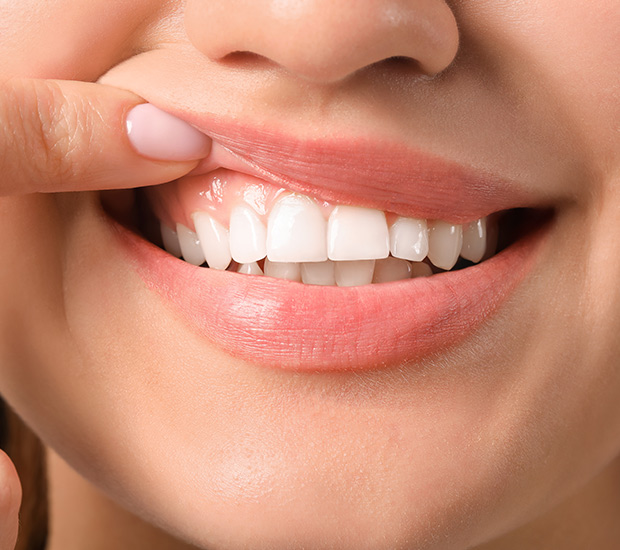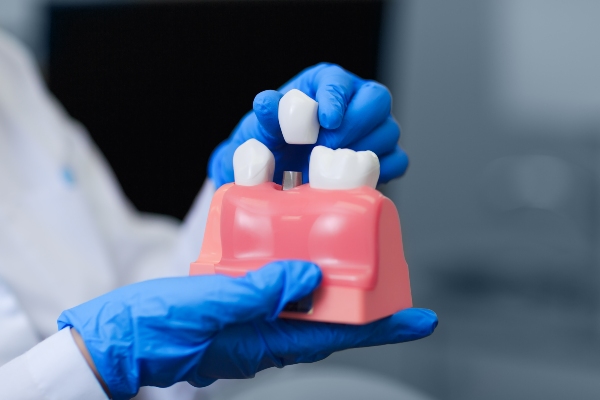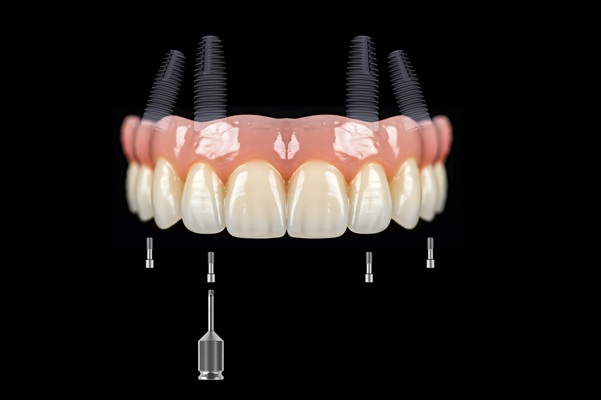Gum GraftingSan Diego, CA
Gum grafting can effectively reverse the effects of gum recession while also enhancing your smile. If left untreated, gum recession can have severe adverse effects, such as tooth loss. Gum grafting is a quick and simple procedure that uses healthy gum tissue to rebuild the receded gums.
Gum grafting is available at Torrey Hills Periodontal Group in San Diego and the surrounding area. There is no reason to delay in preventing additional gum recession and bone loss. Call us today at 858-925-1188 to schedule an appointment or to learn more about our services.
Why Gum Grafting
To understand gum grafting, individuals must first understand gum recession. Gum recession is the phenomenon in which the tissue surrounding the teeth pulls away, exposing the tooth or the tooth’s root. Without a protective barrier, the bone supporting the teeth may become damaged. Though gum recession is a common issue among American adults, it often goes unnoticed until it has already progressed.
The most obvious symptom of gum recession is an aesthetic one in that affected individuals have noticeably gummier smiles than they did before the tissue started to recede. However, gum recession is more than a cosmetic procedure. Over time, exposed tooth roots can cause tooth sensitivity or even tooth loss. Gum grafting is a surgical procedure performed to correct and stop the effects of gum recession.
Check out what others are saying about our Gum Grafting services on Yelp: Gum Grafting San Diego
Types of Gum Grafting
There are three main types of gum grafts: free gingival grafts, connective tissue grafts, and pedicle grafts. While free gingival grafts and connective tissue grafts involve taking tissue from other areas of the mouth, pedicle grafts take tissue from around the affected area to pull it down or over the affected area. In a free gingival graft, the periodontist removes a small piece of tissue from the roof of the mouth and stitches it to the affected area. This type of graft is usually recommended for patients with thin gums who need extra tissue to prevent the gums from receding any further.
Connective tissue grafts are the most common type of gum graft. In this type of graft, the periodontist opens a small flap in the roof of the mouth to remove a piece of connective tissue underneath the top layer to stitch it to the affected area. In a pedicle graft, the periodontist creates a flap of tissue right next to the affected area. This flap covers the receded gums. This procedure requires the patient to have plenty of gum tissue in the areas surrounding the receded gums.
Recovering from Gum Grafting
Gum grafting is an outpatient procedure, meaning patients will be able to leave the office once the treatment has been completed. Depending on their situation, patients may need to wait one or two hours after surgery, so the periodontist can observe their post-operative state for any signs of complications. Most persons will be able to return to work the next day. The amount of pain and discomfort a patient will experience is dependent upon how involved their procedure was. However, even those who have had tissue removed should only feel pain for a few days, and this should be manageable with prescribed or over-the-counter medication.
It typically takes only a week or two for the mouth to heal fully, though it is not uncommon for it to take longer. A follow-up appointment is usually necessary to ensure the healing process is going properly and to remove any stitches if necessary. Gums may also feel tighter and firmer in addition to looking different after surgery. Patients should call their periodontist right away if they begin experiencing any symptoms suggestive of infection. These include (1) bleeding that persists for over 20 minutes, even after applying pressure, (2) fever and pus, and (3) unexpected bruising, pain, and swelling.
Frequently Asked Questions
Am I at risk for gum recession?
Gum recession is typically caused by gum disease, meaning it can affect even patients with good oral hygiene habits. Risk factors for gum disease include old age, tobacco use, genetic predisposition, high levels of stress, certain medications, and a habit of clenching or grinding teeth. Poor nutrition, obesity, and systemic diseases may also contribute. We can help create a personalized treatment plan for your unique risk profile.
Are there any complications associated with gum grafting?
Yes. However, any complications tend to be minimal and uncommon. These involve bleeding or swollen gums, infection, sensitive teeth, and spaces appearing between the teeth. Teeth may also feel looser, although this should be only temporary. There is also the rare possibility that the graft tissue will not attach properly to the graft site, which may require repeat surgery.
Can I be under anesthesia for my gum grafting surgery?
All three types of gum grafts may allow for general anesthesia, which leaves patients unconscious during the procedure. Patients interested in this option should discuss it with Dr. Hunt, D.D.S., well in advance of the procedure to allow us to determine the best course of action for their particular situation.
How can I help speed up healing after my gum graft?
Our staff will provide you with detailed instructions for post-operative care specific to your unique needs. It is crucial that you follow these guidelines to ensure your safety and health, along with the success of the procedure. In general, you should avoid strenuous exercise, foods that are hard to eat, smoking, and flossing or brushing at the treatment site.
How long will the results of gum grafting last?
Though gum grafting is an effective method of repairing gum recession, it cannot guarantee that you will not develop gum problems again in the future. As such, patients must make regular dental checkups and maintain good oral hygiene even after the procedure. With proper care, however, gum grafts can last a lifetime.
Call Us Today
For many patients, gum grafting is the optimal way of stopping the effects of gum recession. We at Torrey Hills Periodontal Group may be able to help. Call us today at 858-925-1188 to schedule an appointment or to learn more about our services.
Torrey Hills Periodontal Group is located at 4765 Carmel Mountain Road Ste 204 San Diego, CA 92130.





